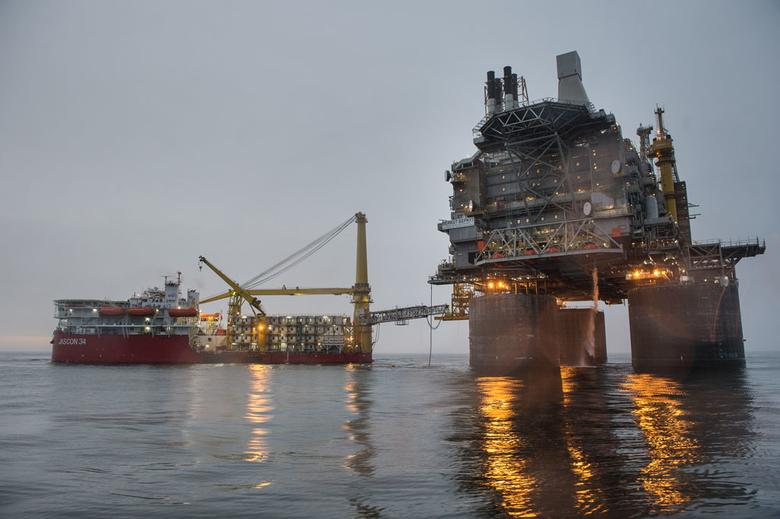
RUSSIA VS UKRAINE: GLOBAL TENSION

AS world leaders condemn Russia for its military actions in Crimea, Ukraine, the escalating tensions have caused a spike in oil and gas prices and turmoil in stock markets, leaving analysts awaiting the outcome on the value of the Australian dollar.
While Ukraine only contributes to about 0.2 per cent of global gross domestic product and of itself has little influence on the world economy, economists have suggested the biggest danger to global growth, outside of outright war between Russia and Ukraine, was the possibility that sanctions or political acts could disrupt the flow of natural gas to Europe and push the euro zone back into recession.
With Russia continuing to increase its military presence in Crimea, concerns about disruptions to energy supplies have caused oil prices to increase to their highest level since September. The price of West Texas Intermediate crude for April jumped 2.3 per cent to US$104.92 per barrel, while Brent North Sea crude increased 2 per cent to US$111.20/barrel and natural gas prices on the UK market rose about 6 per cent.
Russia is currently on-par with Saudi Arabia as the world's largest crude oil producer and is the second-largest natural gas producer.
With Ukraine being a natural gas gateway to the rest of Europe, the outcome of the crisis could have a global impact Analysts have speculated that the world can't afford to lose the millions of barrels of oil or billions of cubic feet of natural gas Russia feeds to Europe and Asia, speculating that even a partial disruption could impact the market. However, at this stage, investors were approaching the situation with measured caution, indicating that the chance of a major supply disruption was far from certain.
According to some analysts, it was this same reliance on Russia as a natural gas supplier that would prevent true economic sanctions. Many have suggested that Russian President Vladimir Putin is in a position to fear little backlash from the Western world – despite publicly condemning his actions, the dependence on Russia's resources could prevent the US and the EU from issuing tough restrictions.
"The biggest blow would be the largest companies in Germany not doing business [with Russia]," former US National Intelligence Council intelligence officer for Russia and Eurasia Fiona Hill said. "That is what [Mr] Putin banks on: Russia is too big and important."
Ms Hill credited Mr Putin with strengthening the Russian economy significantly since coming into power in 2000; creating a dependence on gas supplies that acts as a trump card, giving the politician leverage that did not exist during the post-Soviet era.
The largest market impacts to date have been seen in the countries at the centre of the altercation; the Moscow benchmark Micex index fell 10.8 per cent. The ruble also took a hit, falling to a record low against the US dollar and sparking currency fears in nearby Turkey, Hungary and Poland.
The Euro Stoxx 50 index dropped 3 per cent, the Dow Jones 0.9 per cent, the Standards & Poor's 500-stock index 0.7 per cent and the Nasdaq 0.7 per cent, according to The New York Times. Stocks in large oil companies such as Exxon Mobil and RoyalDutch Shell, who have major investments in Russia, also took a hit.
Despite this, and amid fears that the conflict will turn into a military confrontation, analysts have suggested there is little risk of global financial contagion or of major blowback to Western economies.
"If this turns into an outright war, it will be a different story," London's Berenberg private bank chief economist Holger Schmieding said.
"More likely it will remain a Cold War-style standoff, and if that's the case the economic damage for the West and the global economy will be limited."
Meanwhile the Australian dollar, which fell to US$0.8891, has stabilised at around US$0.89; although its short-term outlook will largely depending on the outcome of the Ukraine crisis.
"If it escalates, the Aussie [dollar] will fall and if it stabilises, the Aussie [dollar] will rise," Westpac New Zealand senior market strategist Imre Speizer said.
As the world continues to watch Russia's actions in Ukraine, retired US diplomat James Jeffrey called for a renewed long-term effort to increase the Western world's leverage over the Putin Government. Arguing the combined US$30 trillion economies of the US and Europe far outweighed Russia's US$2.5 billion economy, he suggested a long-term plan of accelerating negotiations of transatlantic free trade partnership and measures to increase American natural gas supplies to Europe, in tandem with the short-term step of offering major economic aid to Ukraine's new government.
"We are tremendously more powerful than him," Mr Jeffrey said.
"We ought to be able to bailout Ukraine. We ought to be able to make Europe less energy dependent on Russia." With Mr Putin now agreeing to meet with NATO representatives to discuss the Ukraine crisis, US stocks have had an upward momentum, reflecting the hope that tensions are easing. However resource prices, stock markets and the value of the Australian dollar are expected to remain volatile until Russia's intentions are made clear.
oilandgasreview.com.au




